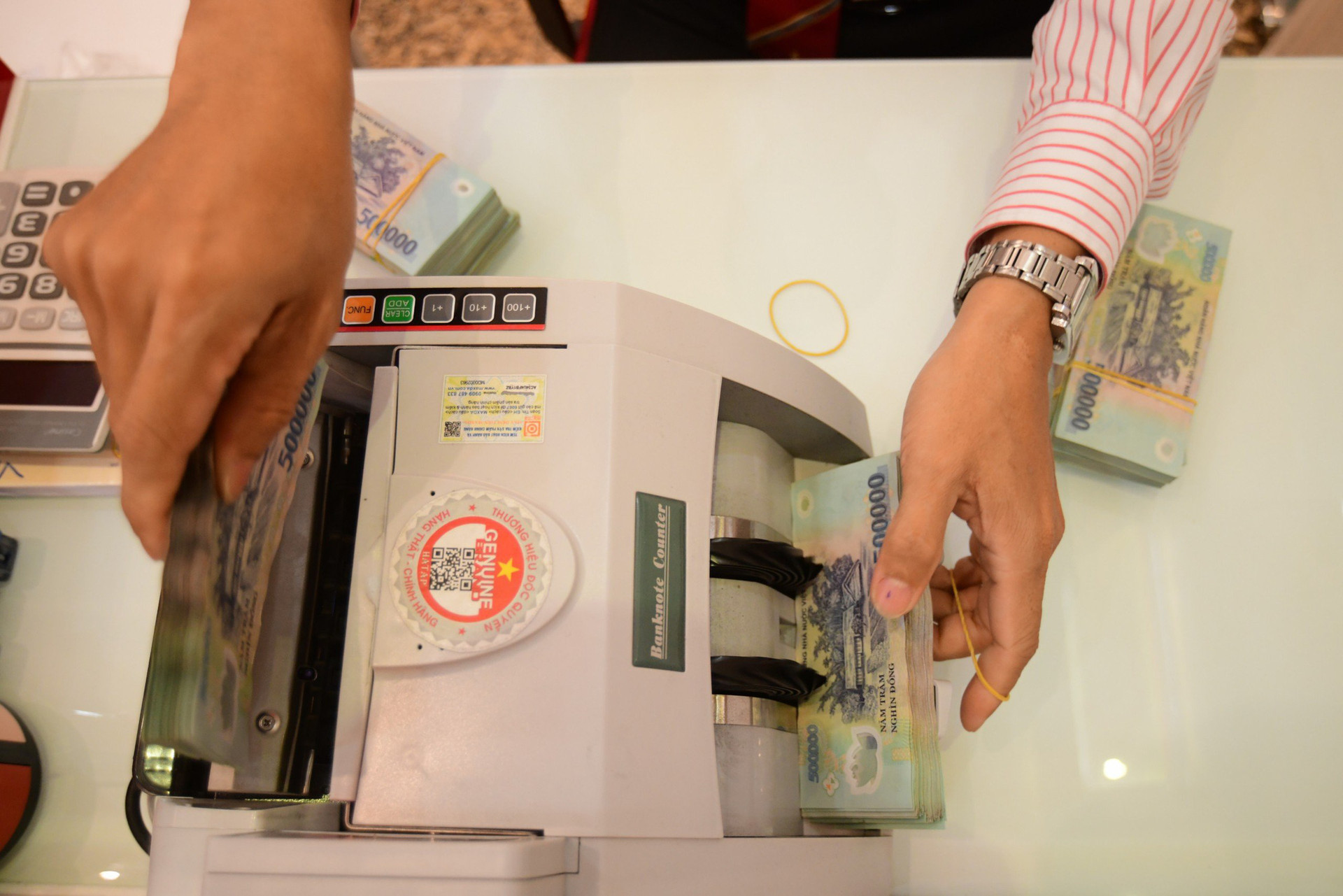The factor that strongly affects interest rates is the price of other assets. Meanwhile, in the first quarter of 2024, the price of gold, stocks and real estate all witnessed a strong increase, according to experts from the Institute of Banking Science Research.

The Banking Science Research Institute (Banking Academy) has just released the banking industry report for the first quarter of 2024.
The report said that despite great pressure from exchange rates, the State Bank of Vietnam (SBV) has kept the operating interest rate unchanged since June 2023. However, in the interbank market, overnight interest rates have increased sharply again since February 2024.
At many times in April, overnight interest rates soared to the ceiling, at 4.92%.
Ms. Truong Hoang Diep Huong, an expert from the Banking Science Research Institute, said that to reduce pressure on exchange rates, the State Bank of Vietnam will issue credit notes again.
As of April 5, 2024, the total amount of treasury bills issued reached about VND 173,000 billion, with an average interest rate of 1.3 - 2.7%. The purpose of this issuance is to reduce short-term liquidity in market 2, push interbank interest rates closer to USD interest rates, and reduce the risk of exchange rate speculation.
The increase in interbank interest rates combined with the reversal of interest rate increases by some commercial banks reflects signs of liquidity shortage.
According to records, interest rates at some commercial banks such as MSB, VPBank, KienlongBank have recently increased again in early April with an increase of 0.2 - 0.5%/year.
"The reversal of credit growth and greater difficulty in mobilization have led commercial banks to tend to increase interest rates," said Ms. Huong.
In a recent announcement from the State Bank, by the end of January 2024, deposits from individuals reached VND6,498 trillion, down 0.53%. Meanwhile, deposits from organizations reached VND6,676 trillion, down 2.41% compared to the end of 2023.
"The factor that strongly affects interest rates is the price of other assets," Ms. Huong commented. In the first quarter of 2024, the prices of gold, stocks and real estate all witnessed strong increases.
This, according to Ms. Huong, causes people to pour excess money into financial assets instead of bank deposits, in the comparison between deposit interest rates and investment returns.
"Therefore, banks often have to increase interest rates to increase competitiveness and attract capital from the population," said Ms. Huong.
The report of the Banking Science Research Institute also showed that in the first quarter of 2024, the price of SJC gold and ring gold maintained an upward trend with a high difference in buying and selling prices, about 2 - 2.5 million VND/tael.
Ms. Huong said that although the difference with the world gold price has decreased slightly, it still remained at 13 million VND/tael at the end of March.
This gap is expected to narrow, but Vietnam's gold price is still growing "hotly" and reaching its highest peak in history. Therefore, controlling gold prices is still an urgent requirement.
In the series of solutions to "cool down" gold prices, the highlight is the implementation of gold bar auctions. If the gold supply through auctions reaches sufficient volume, it will help reduce domestic gold prices in the long term, thereby narrowing the price gap, as happened in 2013.
However, Ms. Huong said the problem for the State Bank is to harmonize the management of the gold market and control the exchange rate. Because if the supply is low, the impact will only be short-term.
But if the State Bank is forced to buy more gold from the international market to maintain domestic supply, it will create pressure to increase the exchange rate.
According to data from the Banking Science Research Institute, both free and commercial bank exchange rates have recorded sharp increases since the beginning of 2024.
The State Bank of Vietnam has announced a draft to change the basis for determining the forward exchange rate between USD and VND in forward and swap transactions in a more flexible manner. If approved, Ms. Huong said that this draft will help determine the forward exchange rate more promptly, closely following the rapid and unpredictable developments of the market.
At the same time, appropriately determined forward rates help businesses have reasonable foreign currency reserve plans, contributing to reducing pressure on the foreign exchange market.
HA (according to Tuoi Tre)